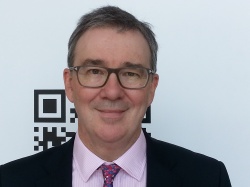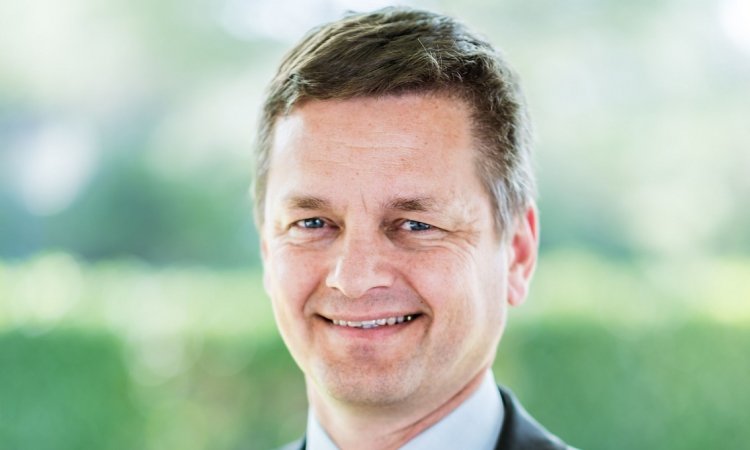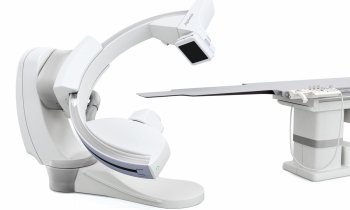Annual conference
The role of cardiology at the extremes
Cardiology at the extremes will be the key theme at the British Cardiovascular Society annual conference in Manchester in June. Topics covered include reflections in cardiology and space travel, physiological challenges associated with living under extreme environmental conditions and polar expeditions.
Report: Mark Nicholls

The conference, from June 5-7, will also host a comprehensive scientific programme with speakers and sessions from the world’s leading cardiologists. BCS conference Programme Committee chairman Professor Cliff Garratt said: “The 2017 programme will once again feature an array of informative, entertaining and interactive sessions, debates, panel discussions, workshops and addresses from international leaders in the field.” It will also see the collaboration with the British Heart Foundation continue in 2017. The opening ceremony keynote speech will be delivered by Professor Ben Levine on “Will the right (cardiovascular) stuff get humans to Mars: reflections of a Space Cardiologist.”
With a unique background in space medicine, serving as a co-investigator on four Spacelab missions and the MIR space station, he was recently the PI of a large cardiovascular experiment on the International Space Station (ISS), called the “ICV”. Leading the BHF Bench-to-Bedside session - which includes a series of presentations on a particular clinical condition given by members of a single unit - is Nick Morrell, Professor of Cardiopulmonary Medicine at the University of Cambridge and Director of the Cambridge BHF Centre for Cardiovascular Research Excellence, looking at “Extreme phenotypes in Pulmonary Arterial Hypertension: from genes to novel therapies.” Professor Morrell’s research focusses on discovering the genetic causes of pulmonary arterial hypertension (PAH), understanding how these contribute to disease, and translating this information into new approaches for treatment.
Delivering the showpiece Strickland Goodall Lecture is Professor Michael Marber from the BHF Centre of Research Excellence at King’s College London. His presentation on “Exploring the extremes of myocardial injury” will focus on biomarkers of cardiac necrosis and how to exploit their extreme sensitivity. The Paul Wood Lecture, “Personalized medicine and computational cardiology – enhancing cardiovascular care and health in the next era” is from cardiologist Dr Harlan Krumholz, the Harold H. Hines, Jr. Professor of Medicine and Director of the Yale Center for Outcomes Research and Evaluation (CORE). His research uses clinical epidemiological approaches to determine optimal clinical strategies for improvement in the prevention, treatment and outcome of cardiovascular disease with an emphasis on under-represented populations.
Highlights of the Scientific Programme include a discussion from animal ecophysiologist and zoologist Professor Craig Franklin from the School of Biological Sciences at the University of Queensland, Australia, with a talk on “Extreme divers in the animal kingdom: cardiorespiratory tricks from the true masters of submergence,” while polar photographer Sue Flood will continue the theme of “Extremes” with a talk about her adventures in the polar regions.
The conference will offer comprehensive coverage of new developments in cardiology and cardiovascular science with sessions on imaging; prediction of sudden death and enigmas in arrhythmias; myocardial infarction and percutaneous management of structural heart disease; ACS in the post-troponin era and assessment of patients with suspected stable angina; landmark trials in heart failure and heart failure crises; and adult congenital heart disease.
Basic science sessions with the British Atherosclerosis Society/British Society for Cardiovascular Research focus on New Frontiers in Cardiovascular Science with sessions including adipose tissue and the cardiovascular system, cardiac and arterial ageing, leukocytes in cardiovascular inflammation, and diabetes and cardiovascular disease.
The conference Education Hall will feature: 100-plus Hot Topic sessions, poster sessions, simulator training and an imaging villag and there will also be international sessions in association with the European Society of Cardiology, American College of Cardiology, Irish Cardiac Society and Indian Cardiac Society. Professor Garratt said: “This flagship conference has attracted progressively increasing numbers of delegates over the last few years, and I plan to continue this trend by improving on this successful model with innovative educational formats. “There is little doubt that there is an increasing - rather than decreasing - need for today's cardiologists to have a broad understanding of all the major subspecialist areas. The BCS Annual Conference is uniquely positioned to facilitate this in one meeting.”
18.04.2017











